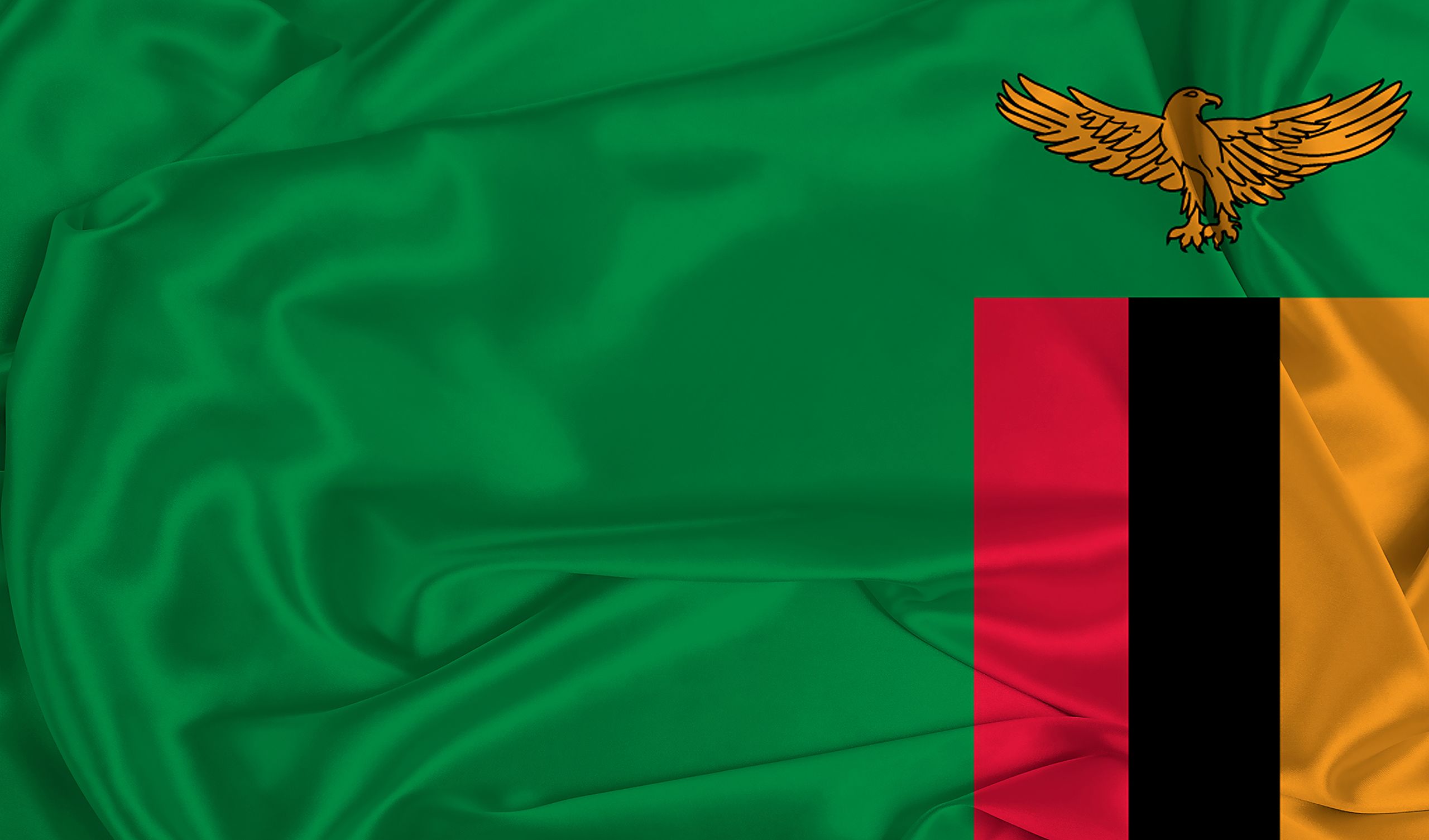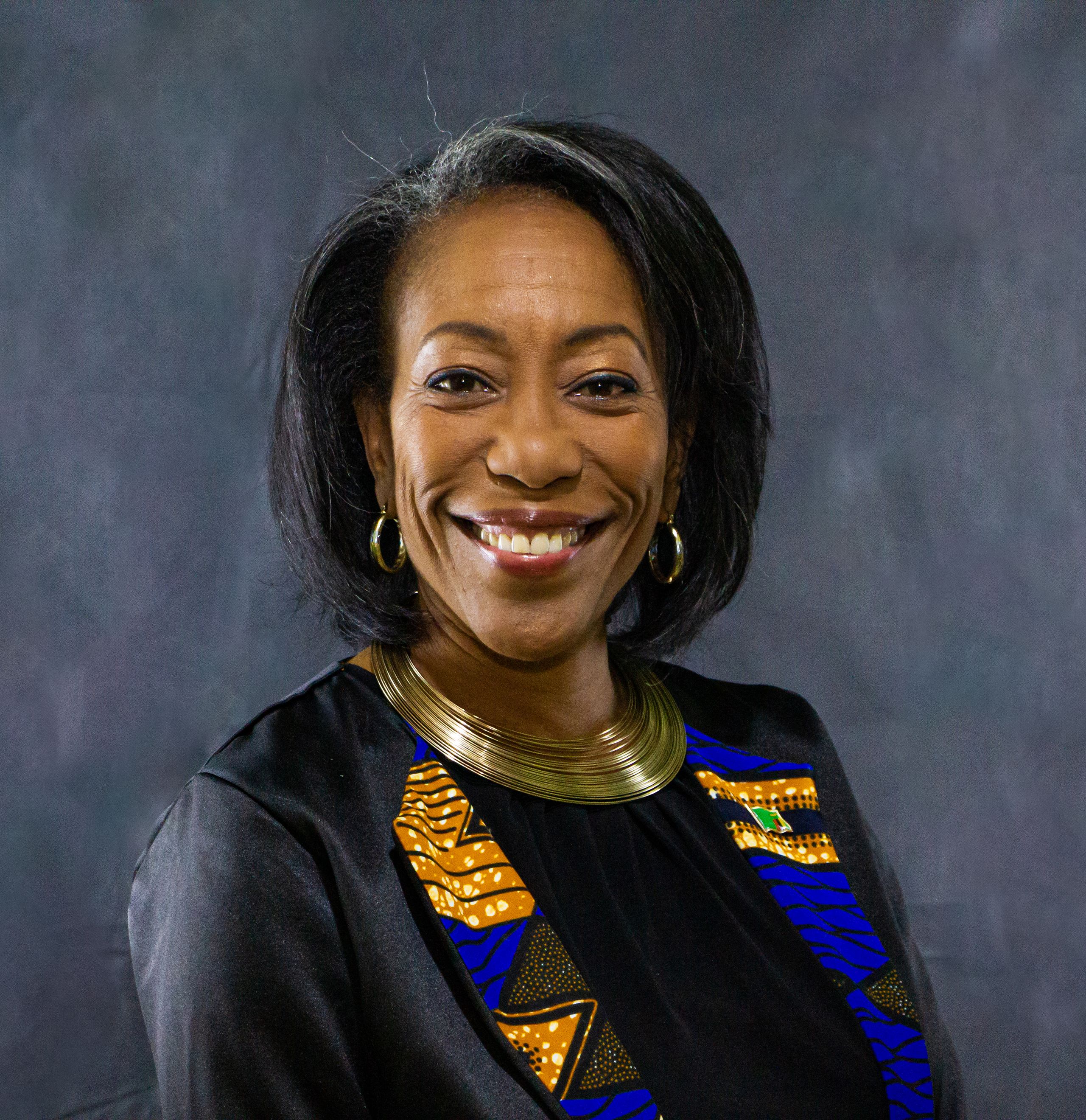Her Excellency
Ms Macenje ‘Che Che’ Mazoka
High Commissioner of Zambia

Zambia’s High Commissioner Her Excellency Ms Macenje ‘Che Che’ Mazoka is more intrepid than most diplomats I have met. She learnt to scuba dive off the Soloman Islands, an activity she becomes quite animated about. “I’ve had some amazing experiences diving around the world, and wreck diving is fantastic. Although,” she admits, “I do prefer to dive in tropical water. I once dove in the Hudson River in New York City. The visibility was horrendous. Never again!” Passionate about travelling, seeing the Northern Lights is top of her bucket list for her posting in the UK, in addition to exploring the UK’s offerings outside of London.
High Commissioner Mazoka arrived in London last summer with her 15-year-old daughter. Her husband travels between London, Zambia, South Africa and the Seychelles, while their eldest daughter is at university in Washington DC. They have settled well into diplomatic life, and she is already a well-known figure in London’s diplomatic community. “I love all the history that is so alive in the capital,” she notes. “It makes the Court of St James’s a special environment to be a part of, with access to events that are so filled with tradition. We get to see a different side to the country, which is exciting.” Two of the most memorable meetings of her life have taken place in the past year: “My audience with King Charles is something I will always fondly remember, and as I’m also accredited to the Holy See, my encounter with the Pope was more than amazing too.”
A self-confessed “international, global citizen,” the High Commissioner is sure her upbringing had a big influence on her career choices. “In the 1960s after Zambia’s independence, my father travelled to the US as a scholarship student. He became a mechanical engineer, before returning to help contribute to the development of a newly independent Zambia. He went on to flourish in the private sector after the work he did for the Zambian government as head of Zambia Railways.” Her mother is a “pan-Africanist” from Virginia. “She grew up in the 1960s in the US during the civil rights era, when there was a lot of attention on the reemergence of the glory of Africa during the struggle for many African nations’ independence. I inherited this global view from my parents.”
After 15 years in public broadcasting in Washington DC and New York, the High Commissioner moved back to Africa in 2006 when she was recruited into the South African Broadcasting Corporation (SABC), where she worked for 16 years. When she was called to serve the Zambian government, High Commissioner Mazoka was leading a division in the South African Broadcasting Corporation (SABC) that dealt with communications and marketing across the provinces. “SABC is the largest broadcaster on the African continent, with 19 radio stations and six tv channels that broadcast across South Africa in all official languages, including a platform that focuses on continental issues. I had to ensure there was alignment between corporate objectives and provincial priorities. By maintaining the authentic provincial identity and culture, we ensured that everyone’s voice was heard on the public broadcaster. I worked closely with regional government, national government and cultural entities to do this.” Prior to that role, she established the Corporations Funding and Partnerships unit which raised capital and formed strategic partnerships with domestic and international donors, such as USAID and the British Council, to fund the production of educational content across all platforms.
Since her arrival in the UK, High Commissioner Mazoka has found plenty of alignment between her broadcasting career and the diplomatic role she has today. “Both jobs have focused on being able to effectively communicate a message and narrative that one wants to convey about your country to achieve certain goals and objectives.”

Alongside her time at SABC, she held various leadership positions. High Commissioner Mazoka recently chaired an NGO concentrating on good governance, democracy and election monitoring in the SADC region (2018-23). “Our initial focus was to ensure there were fair and free elections in Zambia in 2021, then in Zimbabwe. We worked with youth and community groups to ensure that their votes were counted, and the elections were fair.” The High Commissioner also chaired the Develop Zambia Forum, an entity that supports the government’s agenda of bridging resource gaps with the private sector and was deputy chair of the marketing and communications committee of the African Tourism Board, among other roles.
Now High Commissioner in the UK, she explains “Zambia has very good relations with the UK, but there’s always room for improvement and increased bilateral relations. We are waiting for the new British High Commissioner to come on board – this will help maintain the momentum being sustained by the team on the ground in the High Commission in Lusaka that is incredibly active. Of course, we also have warm relations with His Majesty the King. He, and our president, Hakainde Hichilema are great friends.”
She is concise on the priorities for her mission: “Economic diplomacy is the key driving force that all of us serving in Zambia’s foreign service have been asked to pursue. We must increase investment into Zambia. We need to grow our economy. We are coming out of a fairly dark place financially, and the President has been extremely aggressive in terms of marketing the country as a business-friendly investment destination, by refining policies and providing incentives to ensure we create an enabling environment for investors. These fruitful relationships should not only work out well for investors, but also benefit local Zambians.” She highlights that “Zambia is the repository for many of the critical minerals that are required for the new sustainable future for the world. Zambia and the rest of the continent hold the future of the world’s energy transition in our soil.”
The High Commissioner was recently elected to serve as the Africa representative on the Executive Committee of the Commonwealth Secretariat for the next year. “Zambia is a supportive member of the Commonwealth. Like other members, we look forward to CHOGM, and the myriad of conversations we will have about a reformed Commonwealth to be brought up to the modern age by the member states in tandem with the current and (soon to be elected) new Secretary General from Africa.”
Extreme drought in Zambia has recently highlighted the ongoing dangers of climate change. “The drought has hit us and our region hard. We were initially focusing on increasing hydro as our primary green energy source, which became severely affected. We are in recovery but are now facing food security issues. The World Bank has lent assistance with a grant, but we now need to build resilience and diversify our energy sources. The President has called for ‘a solar explosion’ in Zambia so that’s something we are aggressively promoting, along with initiatives to encourage the population to ‘go green’. The landscape for investors is extremely fertile.” President Hichilema has also introduced an innovation into government, the Ministry of Green Economy and Environment. “The Ministry is intertwined with all the other ministries, as all sectors need to have a green viewpoint.”
The country is not without its challenges. “Zambia’s economy is in recovery from a very difficult position for various reasons. There had been financial mismanagement and corruption, which is being corrected. The Covid pandemic affected us, like everyone else, but we were the first country to default on our loans. President Hichilema and his administration have been actively negotiating our debt burden with our creditors. It’s been a tough and long journey, but we are almost there – we’ve made tremendous strides. There’s a lot of interest in Zambia, and potential investors have been watching the progress with great interest. We are continuing to rebuild trust with our financiers, as we rebuild and correct what has happened in the past. We are putting measures in place to ensure that Zambia never goes back to being in that situation ever again. This government is committed to ensuring that Zambia, her people and the investors who come on board continue to grow from strength-to-strength.”
